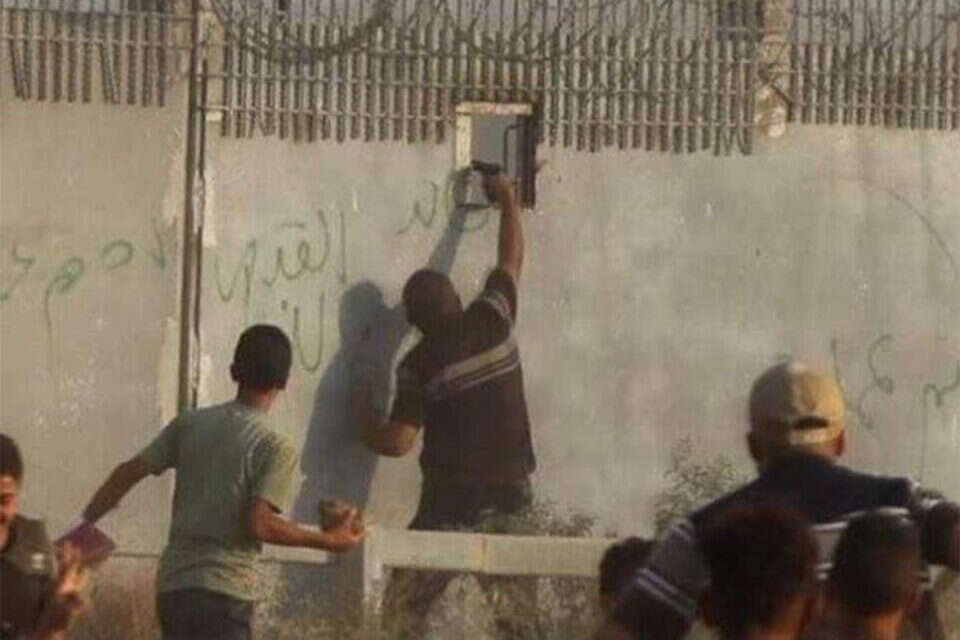The massacre that took place on 7 October sheds new light on the death of Barel Hadaria Shmueli, who was shot in the head at point-blank range on 30 August 2021 at the border fence with Gaza.
It is more correct to say, in the light of October 7, that his death illustrates the crucial importance of fully exposing the truth. This was a step up in the steady erosion of the buffer zone, which separated Hamas terrorists from the civilian population in Israel. Nevertheless, the harsh criticism of his mother Nitza, and of a broad public that pointed out the failures in the policy of the security establishment in the region, was silenced with ambiguity.
Last week, Nitza Shmueli returned to the public discourse. In a Knesset debate on the continuity law she initiated and promoted, MK Merav Ben-Ari slammed her: "You're lying... Why did you come here at all?" However, Shmueli has already been stripped of the status of "martyrs," which is automatically (ostensibly) granted to bereaved families and families of abductees, very shortly after the loss of her son. Back then, she demanded answers from the military leadership and did not receive them. No one paid a price for his death, and commanders on the ground were even promoted. The defense establishment refrained from capturing the murderer out of fear of escalation, and there are rumors that he was killed only in the current war.
Shmueli has always argued that Barel's death is not a personal, temporary incident, but part of misconceptions that the military system has adopted over the years. Barel was not killed during an operation or war. As a Border Police sniper, he was part of infantry forces dispatched to deal with disturbances near the fence. A few years earlier, in March 2018, the "return marches" began as a civil protest against the closure of the Gaza Strip, to realize the Palestinians' right of return.
Very quickly, the "protests" became tactical tools in the hands of the terrorist organizations, and that same year, a Givati fighter, Staff Sergeant Aviv Levy, was shot by a Hamas sniper (the weapon was Iranian).
The demonstrators set up a "return camp" with a permanent presence of Palestinian activists, some of them human rights activists, and marched to the fence every Friday for two years. Hamas buses brought terrorist operatives who received payment for their participation.
In addition to stones and Molotov cocktails, there were also incendiary kites, arson of fields, IEDs, attempts to infiltrate and fire at IDF forces and civilians. The military responded mainly with crowd control measures, but sometimes also with live fire. Hundreds of Palestinians were killed and wounded. After a pause in clashes during the COVID-2021 period, the riots revived in <> and continued after Operation Guardian of the Walls in May of that year. Barel, as mentioned, was shot in August.
2022 was a relatively quiet year on the fence, which was attributed to an increase in the number of workers entering Israel and other civilian measures. However, on 30 August 2023, Gaza has already announced that the 'return camp' has been reestablished. Tractors leveled the ground and paved access roads, Palestinians demonstrated and tried to infiltrate Israel. In practice, the soldiers had no good way of dealing with unarmed demonstrators approaching the troops. Hamas, for its part, took advantage of the ongoing erosion of the buffer zone alongside the fence. Today it is clear that its use of civilians and allegedly nonviolent protests is intended to normalize the presence of masses near the fence.
Shmueli has always argued that Barel's death is not a personal, temporary incident, but part of misconceptions that the military system has adopted over the years
A week before October 7, Shmueli was interviewed and warned that the Nukhba terrorists were the same people who rioted on the fence when her son was shot, and that they would not hesitate to cross it. Her clear, deep voice could have challenged military perceptions – but was silenced, as part of a political war on the right. It didn't help that Shmueli and her family criticized the use of Barel's death, both on the right and on the left.
In order to understand October 7, it is necessary to examine the way in which the apparatuses in the country dealt with exceptional events in their aggression. Like the Barel Shmueli affair, the prison guards affair and the protection phenomenon were ignored for political reasons. In these events, all the erroneous "conceptions" were folded, and their cover-up was devastating.
Wrong? We'll fix it! If you find a mistake in the article, please share with us

